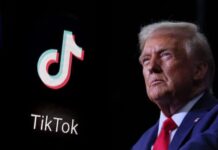US President Donald Trump has come out with a blanket ban on “illegal” protests, hitting universities and protesting students. Trump threatened that colleges that permit the protests will forfeit federal money. Foreigners who take part in the protest will be deported, while their American counterparts can be expelled.
Tough Crackdown on Campus Protests
Trump’s move comes after huge student demonstrations in 2024 against Israel’s Gaza war. Thousands of students were arrested at universities such as Columbia and UCLA. The administration says these protests have resulted in antisemitic attacks and campus disturbances.
On his social media site, Truth Social, Trump stated:
“All federal funding will STOP for schools that allow illegal protests.”
But he did not clarify what makes a protest “illegal.” Critics say this is confusing and could be used for arbitrary enforcement.
Also read: Trump’s Speech Highlights: “Golden Age of America” Begins Now
Severe Punishment for Protesters
According to Trump’s policy, both the universities and students will have to endure severe punishments:
- Universities that permit protests will lose millions of dollars in federal funding.
- Foreign students who are involved will be deported immediately.
- American students who are involved will be expelled.
- Schools will be required to monitor and report student activity involving protests.
These actions are part of Trump’s larger initiative to “restore order” on college campuses.
Government Agencies Act
Several government agencies, including the Department of Education, have started investigating universities.
Columbia University is being reviewed by the federal government for its response to protests.
$51.4 million in federal contracts may be withdrawn. More than $5 billion in grant money is now under reconsideration. Trump’s administration maintains these actions are needed to safeguard Jewish students and avoid campus violence.
New Executive Order Widens Crackdown
Trump signed an executive order in January 2025 to tighten grip on student protests.
Provisions include.Deportation of foreign students who participate in demonstrations. Reporting and monitoring of student activism by universities. Investigations into universities accused of permitting antisemitic activity. The White House defended the order, saying it was intended to “quell pro-Hamas vandalism and intimidation.”
Also read: Apple $500 Billion Investment In US Fuels AI & Manufacting
Responses from Supporters and Critics
Trump’s action has elicited strong responses from supporters and critics alike.
Supporters Say
- It brings order to campuses.
- Jewish students are safer with more robust protections.
- Taxpayer dollars shouldn’t go to universities that allow disruptive protests.
Critics Argue:
- The prohibition infringes on free speech rights under the First Amendment.
- Deportation of students is an excessive and unjust penalty.
- The loose definition of “illegal” protest might stifle legitimate activism.
- The Foundation for Individual Rights and Expression (FIRE) condemned the policy, saying Trump has no authority to unilaterally withdraw federal funds.
Universities Are Confronted with a Hard Decision
Universities are now confronted with a hard decision:
- Obey Trump’s policy and limit student protests.
- Risk losing billions in federal funding by permitting demonstrations.
- Take a stand legally and sue the policy in court.
- Legal analysts anticipate lawsuits will arise, challenging whether the policy infringes on constitutional rights.
Effect on Student Activism
With Trump’s crackdown enforced, student activism may significantly shift in the months ahead. Universities could reinforce protest regulations to escape funding reductions. Student organizations could be subject to additional limits on the ability to stage demonstrations. Certain activists might take protests off campus to sidestep fines. Even with severe punishment, many students continue to be set on continuing to speak out for what they consider important.
What Happens Next?
The ultimate effect of Trump’s policy is unknown, but some important events are anticipated:
- Legal challenges from civil rights groups.
- Federal probes of more universities.
- Possible modifications in campus policies to respond to the new regulations.
Conclusion
With Trump going ahead with his hardline approach, the argument concerning free speech, campus security, and control by the government will further gain momentum.








